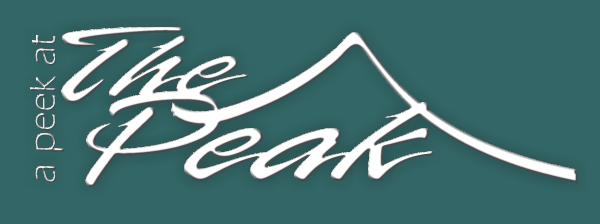by Lois Roberts
Courtesy Thistle Magazine
And so somewhere down South a puzzled ornithologist examines an odd duck that has landed on a pond along with a group of migrating birds from somewhere up North. What an odd-looking mass of skin and feathers attached to the right side of her head! Looks kind of like she’s wearing a beret. And only one functioning leg forces her to swim partially on her side – could this be a new species? Or is this just a weird duck?
My husband, a graduate of Johns Hopkins, Cornell Medical School, a residency at New York’s Bellevue Hospital and Memorial Sloan Kettering was, by his own admission, not interested in disease. His interest was in people. So, perhaps his habit of making house calls, even then, is somewhat understandable. The payments he graciously accepted were not always welcomed by me. For instance – once a very sweet Siamese kitten, another time a colorful and very loud rooster, once a small and totally ungovernable pony and on many occasions whole litters of baby ducklings.

Snapping Turtle
We lived on some seven acres of land in Farmington. Our three small daughters played in the woods and often in our two-acre pond where the ducklings always enjoyed their new home for however long the snapping turtles would let them alone. We had cleared the pond several times but the turtles always seemed to reoccupy it as soon as they could, and every morning there seemed to be one less duck out there on the water.
One duck in particular became a favorite since a snapper had left her with only one leg with which to swim, a disability which did not seem to matter to her as she swam just fine although tilted somewhat to the left. My children named her Hard Luck Duck and they always made sure she received more than her rightful share of breadcrumbs at the daily duck feedings they conducted.
Our house was built right along the pond banks; in fact, our porch was cantilevered over the pond. One evening as we were eating dinner, there was a commotion on the pond. Indeed, a snapper had caught a duck by the head, and she was fighting for her life. I ran down the stairs, grabbed a canoe paddle and waded into the pond, landing a number of blows on the back of the turtle. I don’t think I made much of an impact on the turtle, but for some reason he abandoned his attack and disappeared down into the pond muck. The duck, quacking loudly swam away, slightly tilted to the left and trailing a long ribbon of skin and feathers from her head. The turtle had partially scalped her, and we all instantly recog¬nized her as Hard Luck Duck, the chil¬dren’s favorite.
For days, Hard Luck swam around the pond with her unsightly headdress until, I admit, I could no longer stand it. “Dick,” I said, “that poor duck must be in terrible pain. We need to catch it and put it out of its misery.” Dick agreed and so, since the next day was a Friday and his day off, we caught Hard Luck. She was easy to catch since she, and all those ducks, would come when called to get their allotment of breadcrumbs. But once we had her, we stood looking at each other expectantly, each of us anticipating the other to become the executioner.
“C’mon Dick,” I said, looking the other way. “You’re a doctor. You must know how to do this.”
 “I do a lot of things for my patients,” replied Dick,” but I don’t kill them. I just can’t do it. I don’t know how.” I couldn’t believe it. Cornell had taught Dick many things, but apparently, they had neglected that little detail. One look at Dick told me he was completely serious. Another look told me that – – “No,” I said as forcefully as I could. “I’m just the housewife here. This is Farmington, Connecticut, not the little house on the prairie, and I don’t kill ducks. I kill mosquitoes! and that’s it.”
“I do a lot of things for my patients,” replied Dick,” but I don’t kill them. I just can’t do it. I don’t know how.” I couldn’t believe it. Cornell had taught Dick many things, but apparently, they had neglected that little detail. One look at Dick told me he was completely serious. Another look told me that – – “No,” I said as forcefully as I could. “I’m just the housewife here. This is Farmington, Connecticut, not the little house on the prairie, and I don’t kill ducks. I kill mosquitoes! and that’s it.”
Thus, began one of the worst fights we ever had in many years of marriage. Some how Dick’s back was up, and I could see this was going to be a losing battle. But I was certainly not going to kill a defenseless duck, especially in front of the children all pleading, ” Mommy, please help Hard Luck – Please!”
And then, someone suggested that we call our veterinarian.
“Yes,” I said. “Yes. Call the vet.” I slammed out of the house hoping that would settle the matter. Actually, I had said that to shame Dick into action, think¬ ing he would not want to make a fool out of himself by calling a busy veterinarian about a duck, for heaven’s sake. But I was wrong again. I arrived in the house just as Dick switched the phone to speaker phone and I heard our vet’s vaguely annoyed voice, “You’re a doctor, aren’t you? Sew her up!”
“But I’m not a plastic surgeon. I’m not even a surgeon, Doc. I’m an internist.”
“Look, doctor. The other ducks are not going to care, I can assure you. Just sew her up. Ducks have very few pain recep¬tors and they resist infection well. So just get a needle and thread and sew her up. Good luck.” The phone clicked. Our vet had returned to his busy Friday practice.
Dick ran about the house gathering his instruments – a needle, lots of thread, some scissors, more needles for back up, Band-Aids, lots of gauze – and suddenly this man whom I had known since we were mere kids, freshmen in college no less, had become a noted surgeon, a saver of souls, humanity and ducks. “Sterilize these,” he barked at me, and I, who had suddenly become the operating room scut nurse, did just that down in the kitchen with a bar of soap that smelled a bit more antiseptic than Yard¬ ley’s Lavender.
“Look. You’ll have to get out of my way. I have to make a sterile field here,” Dick said with a sweeping gesture indicating the entire kitchen breakfast bar. Luckily, I decided to curb my smart mouth com¬ments even when I saw that Dick had donned a white coat. “You figure out how to prepare Hard Luck.”
I had already given that some thought and so I got a pillowcase and cut off one corner where I planned to stick Hard Luck’s head. The rest of her would be in¬ side the pillowcase and I could hold the whole thing much like I imagine one would hold a bagpipe. Her head would stick out of the hole where I had cut off the corner, and Dick could do what he was going to do without being handicapped by a lot of flapping duck.
So, with three little faces peering over the breakfast bar from the other side, Dick operated and I held until Hard Luck was repaired. Was it a beautiful job? No. Decidedly not! The skin and all the at¬tached feathers were now sewn to her head, but sort of on the side like some little beret, and Dick and I decided to put her in the Recovery Room, our tool room downstairs, until she was feeling better.
Well, that day never came. Hard Luck refused to eat or drink. She even looked smaller, rather pale and wan, and it be¬ came obvious that something more had to be done.
 “Let’s put her back on the pond with her friends,” I said. “I don’t know how long she will last, but at least, she will be happy.” I looked around for my surgery hero but for some reason, he had disappeared and was not responding to any calls. Children to the rescue! They picked up Hard Luck and took her to the pond where she kind of hopped into the water and began to swim to the other side. But things were still not right with Hard Luck. She began to sink as she swam. Apparently, ducks have some sort of oil in their skin which makes swimming possible, and Hard Luck had lost most of hers – – trauma from surgery. “Get the canoe. Hard Luck is sinking,” the kids chorused. And Dick, who had amazingly reappeared, feeling pretty ill-used but functional, rescued the duck, somehow maneuvering her with the blade of a paddle, and finally placed her on the opposite bank where, in the weeks that followed, we fed her until she began to swim successfully on her own. That took a long time, but Hard Luck had enough sense to stay on the opposite shore and quack loudly when she required some attention.
“Let’s put her back on the pond with her friends,” I said. “I don’t know how long she will last, but at least, she will be happy.” I looked around for my surgery hero but for some reason, he had disappeared and was not responding to any calls. Children to the rescue! They picked up Hard Luck and took her to the pond where she kind of hopped into the water and began to swim to the other side. But things were still not right with Hard Luck. She began to sink as she swam. Apparently, ducks have some sort of oil in their skin which makes swimming possible, and Hard Luck had lost most of hers – – trauma from surgery. “Get the canoe. Hard Luck is sinking,” the kids chorused. And Dick, who had amazingly reappeared, feeling pretty ill-used but functional, rescued the duck, somehow maneuvering her with the blade of a paddle, and finally placed her on the opposite bank where, in the weeks that followed, we fed her until she began to swim successfully on her own. That took a long time, but Hard Luck had enough sense to stay on the opposite shore and quack loudly when she required some attention.
The summer wore on, and then one day in the autumn, Hard Luck disappeared with a bunch of other ducks. We didn’t even get to say “goodbye,” but we all knew where she was going – – South.
Thank you. The author, Lois Roberts, is a resident of a lifecare community. Her article was published in the July 2018 issue of Thistle Magazine, which is published by the residents. Thank you Lois for this excellent article. Editor, The Peak
The Peak Welcomes Your Comment
GPPA Membership Make a Donation to GPPA Peak Advertisements & Advertorials


























Recent Comments